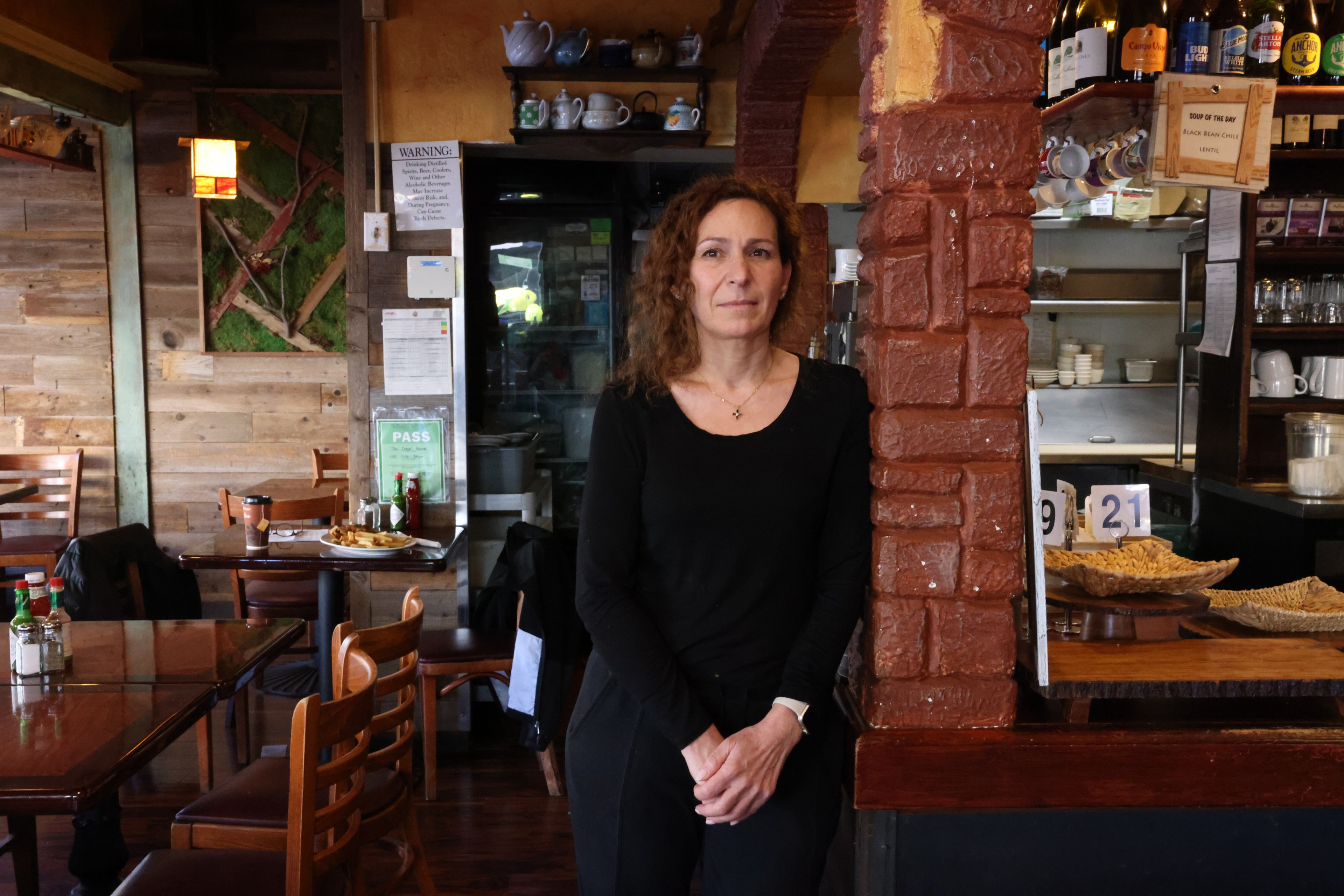For 28 years, Riham Jweainat only had to worry about administrative tasks to run The Crepe House, buying ingredients, doing payroll and other minutia.
Now, she finds herself working 12-hour shifts working as owner, waiter and sometimes cashier—seven days a week.
“It’s only been since August that I’ve had to come in,” Jweainat said.
An economic double-whammy of soaring inflation and a labor shortage has wreaked havoc on local businesses, including neighborhood joints like Jweainat’s Polk Street brunch spot.
Jweainat has had to close five hours sooner than she used to since August—shutting the doors at 3 p.m. instead of 8 p.m.—because she just doesn’t have the staff she needs to stay open longer—and not through lack of trying to hire some.
Business has been slow, too, which means that the employees don’t get the kind of tips they used to, and that makes it harder for Jweinat to keep them onboard.
Longtime staffer Motaz Altwal has seen the problem firsthand, with staff coming and going faster than they used to.
“It’s so quiet that they don’t get tips during the shift,” said Altwal, who’s worked as a cashier at The Crepe House for three years. “Two weeks, two months, they get another job; they quit.”
Inflation Bites
Inflation also continues to take a chunk out of The Crepe House’s bottom line—a tub of cream cheese is now $19, up from $6 a few months ago, while a case of strawberries that used to cost $15 is now $45, Jweainat said. Cases of 15 dozen eggs were as high as $120 three weeks ago—although they have since gotten cheaper—but prices of other goods continue to climb, and Jweainat said she can’t raise prices enough to keep pace without discouraging customers.
“You can’t raise prices enough to keep your [profit] margin where it was before. It’s shrinking and shrinking,” Jweainat said. “How much can you really charge for a breakfast burrito?”
The Standard has reviewed a letter Jweainat got from Alameda-based bakery Semifreddi’s on Jan. 22, telling her that bread and pastry prices were increasing to cover its “dramatically increased” labor, packaging and insurance costs. Semifreddi’s was contacted for comment.
Semifreddi’s co-owner Tom Frainer said cost increases are a matter of survival.
“We aren’t raising prices to line our pockets, we have to make a certain profit to do what we do,” Frainer said. “This has gotta be the toughest time in U.S. history to run a business in our industry.”
Jweainat says her only glimmer of hope is that she is able to hire more kitchen staff to extend weekend hours from 2 p.m. to 8 p.m., but that’s only if she can find front-of-house staff to support them, and only if they stay onboard long-term.
